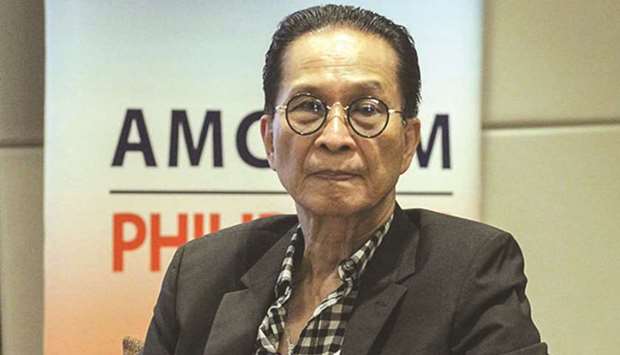The Philippine government may terminate a proposed joint oil and gas exploration deal with China if it would turn out “detrimental” to the country’s interests, according to a Malacanang official.
Palace spokesman Salvador Panelo said a signed memorandum of understanding (MoU) between the Philippines and China on the deal is not legally binding.
Thus, he added, Manila can walk away from the deal if “serious” studies will show that it violates the Philippine Constitution and laws.
“Of course, definitely,” Panelo said, when asked if the Philippine government can abandon the joint oil exploration deal with China if it is detrimental to the country’s interests.
“The predicate is: Is this agreement legal as far as we are concerned under the Constitution? Number two, is this beneficial to us? Otherwise, we will not permit it.
Of course, it should be favourable to us, not just to them,” he added.
Panelo said the deal between the two countries should be based on “mutual respect, mutual fairness and respect for each other’s sovereignty.”
“If serious studies show that there is something wrong, in law, there is such a thing as recission of contract. If the contents of the contract do not contain the intention of the parties, you can rescind it,” he explained.
The Philippines and China signed the MoU, which seeks co-operation on oil and gas development, during Chinese President Xi Jinping’s visit to Manila on Tuesday.
On Thursday, Foreign Affairs Secretary Teodoro Locsin Jr released a copy of the agreement between the two nations in a television interview. The MoU does not specify areas where the joint exploration would be done.
It, however, notes that the Philippines and China should facilitate oil and gas exploration and exploitation “in relevant maritime areas consistent with applicable rules of international law.”
The plan is for the Chinese and Philippine governments to establish an “inter-governmental joint steering committee” and one or more “inter-entrepreneurial working groups,” Locsin said in a recent interview with CNN Philippines.
He added that the committee would be headed by the foreign ministries of both countries and would include relevant agencies, while the working groups would have representatives from enterprises authorised by the two governments.
“The committee will be responsible for negotiating and agreeing (to) the co-operation arrangements in maritime areas to which they will apply, and deciding the number of working groups to be established and for which part of the co-operation area each working group is established,” Locsin said, reading from the document.
The working groups would negotiate and agree on inter-entrepreneurial, technical and commercial arrangements that would apply in the relevant working area, he added.
Based on the document, China would designate China National Offshore Oil Corp as the Chinese enterprise of each working group. The Philippines would authorise Philippine National Oil Co or other enterprises that have service contracts.
“The two governments will endeavour to agree on the co-operation arrangements within 12 months of this memorandum of agreement,” Locsin said.
In a statement issued on Friday, Energy Secretary Alfonso Cusi said the impending joint exploration “may or may not include joint exploration between the Philippines and China in the West Philippine Sea (South China Sea).”
“I must emphasise that whatever the outcome of this MoU, the rights of existing Service Contract holders will be protected. I understand that there is great interest in the MoU signed with China. I would ask for everyone’s patience until the full details are ready to be made public,” Cusi added.
“As the secretary of Energy, my priority is safeguarding our country’s long-term energy security. A component of this is developing new indigenous energy resources in the West Philippine Sea,” he said.
The signing of the MoU came amid long-standing disputes among the Philippines, China and other claimant nations in the hotly-contested South China Sea, which is rich in oil and gas deposits.
Senate President Pro Tempore Ralph Recto yesterday said he was convinced that it was safe for the Philippines to proceed with its oil exploration agreement with China.
International / ASEAN/Philippines
Oil deal with China can be abandoned ‘if detrimental to interests’

Panelo: assurance on national security
